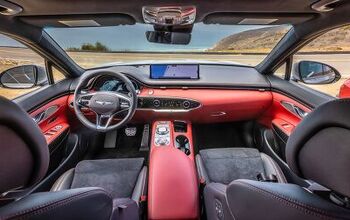Audi Losing Market Share in China as Youth Reject Communist Government Image
Audi, long the automaker of choice for Chinese bureaucrats, has found itself suddenly losing to rivals, BMW and Mercedes-Benz. As the nation creates a new generation of wealthy young buyers, Audi’s market share in China has fallen by 25% in less than two years.
Mercedes market share is now at 22 percent from 16 percent in 2009. BMW’s share grew to 25 percent to 21 percent. Finally, Audi have fallen from their previous 40 percent to a current 30 percent.
According to Shaun Rein, Shanghai-based managing director of China Market Research Group, “Audi is seen as being a bit old-fashioned because of its association as being a government car. Wealthy consumers today want something sexier, more indulgent, which is why BMW and Mercedes have done well… Ten years ago, everyone wanted to be in government as that was seen as the ticket to wealth. Today, the new wealthy consumer doesn’t want to be associated with officialdom.”
Jim Hall, principal of automotive consulting firm 2953 Analytics Inc. explains, “Audi has a slightly schizophrenic image. In China, its sedans are government cars and are considered stodgy. In the U.S. and Europe, Audi is edgy, stylish, and a smarter buy than a Mercedes or a BMW.”
Now, young customers and families will be the main customer focus for Audi. Studies indicate that China possesses the youngest average age of Asia’s wealthy entrepreneurs. The average age of people in China with liquid assets of at least 500,000 yuan ($78,700) is 36. Comparatively, the age is 38 in Indonesia, and 48 in Hong Kong.
Audi’s President of China, Dietmar Voggenreiter, intends to reverse the market share slide by pushing an image of young and trendy models such as the R8 Spyder sports car and the A1 subcompact. The Audi A7 four door coupe will be available in China next month and the Q3 crossover in 2012.
[Source: BusinessWeek]
More by Danny Choy































Comments
Join the conversation